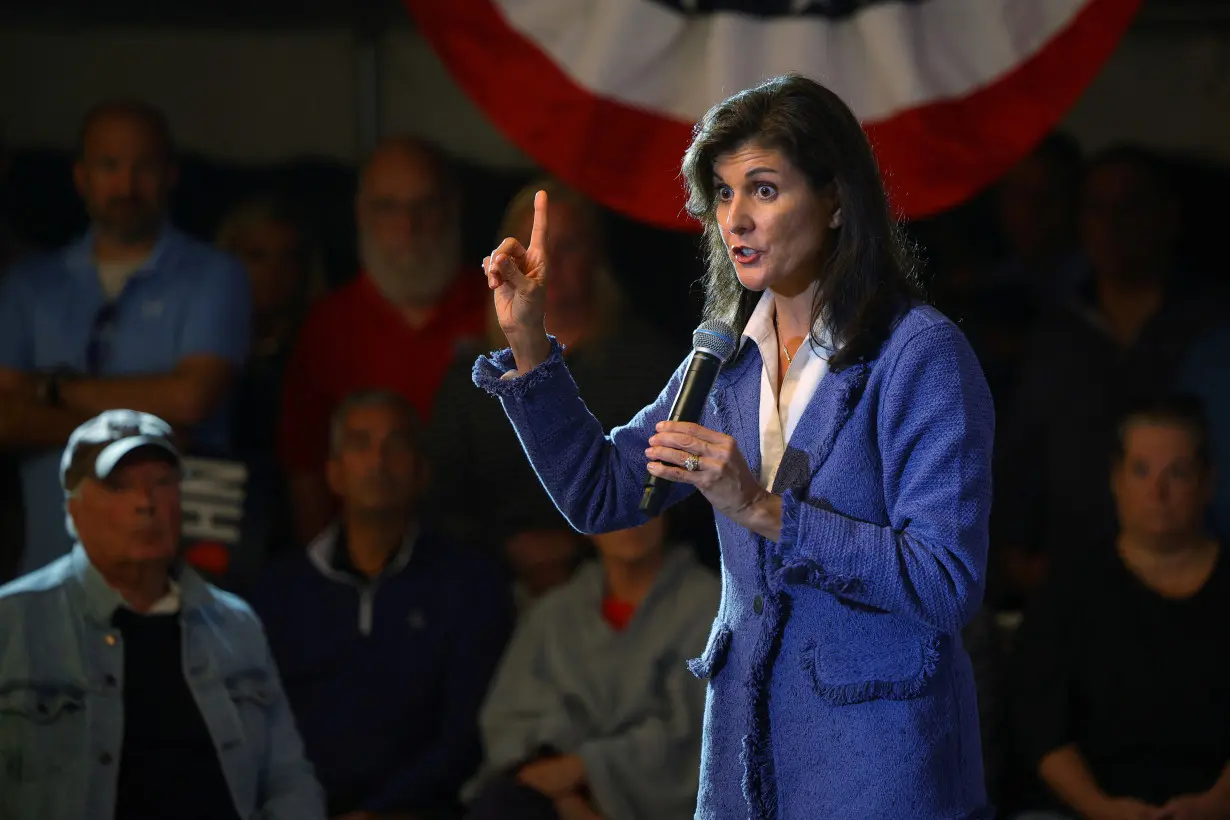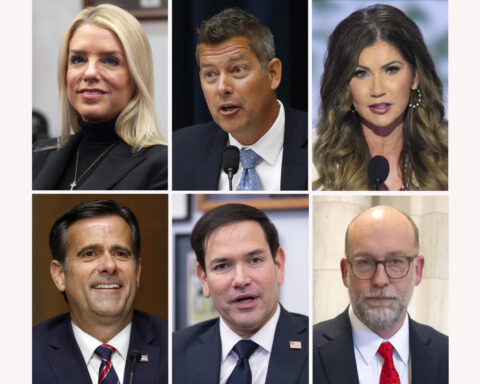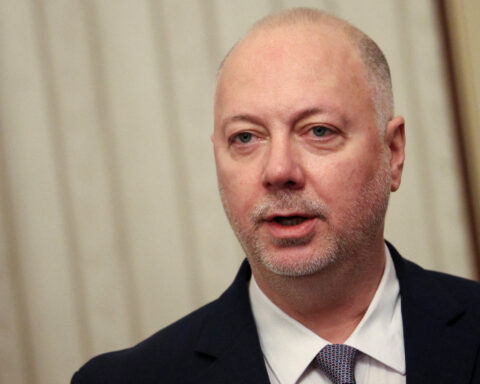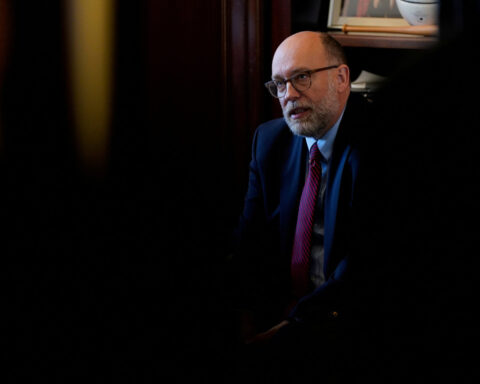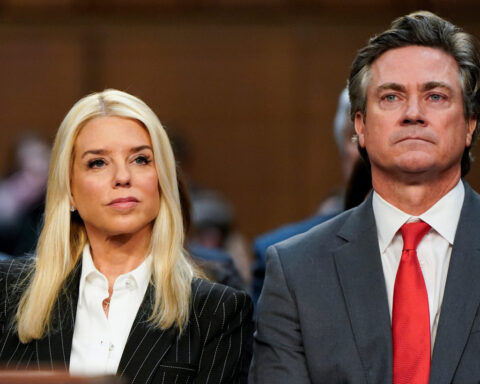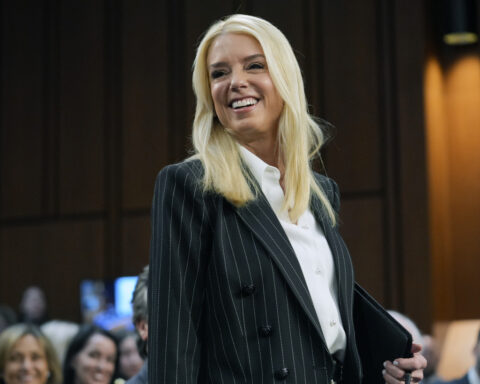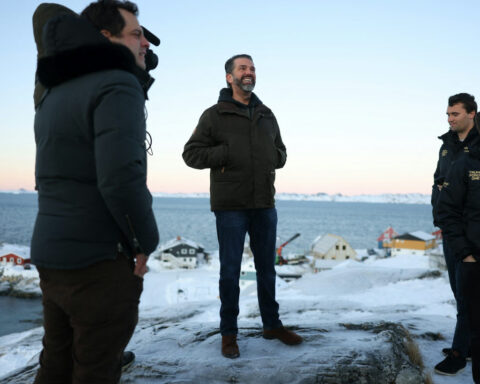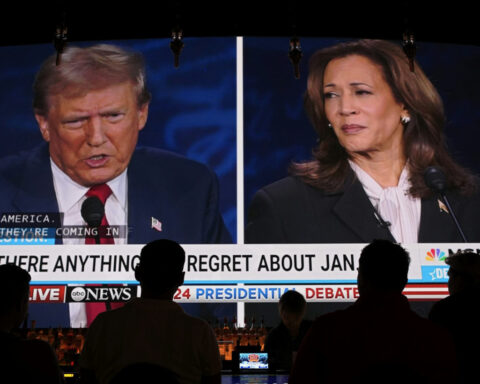(Reuters) - U.S. presidential contender Nikki Haley has enjoyed a bump in support among voters and donors over the last three months, and she is now locked in a battle for second place in the Republican nominating contest with Florida Governor Ron DeSantis.
Still, the former U.S. ambassador to the United Nations remains in third place nationally, behind DeSantis and former President Donald Trump, who is by far the frontrunner.
Here are some facts about Haley's life and political career:
DAUGHTER OF IMMIGRANTS
Haley, 51, has gained a reputation in the Republican Party as a solid conservative who has the ability to address issues of gender and race in a more credible fashion than many of her peers. At the same time, she has drawn criticism for her ambiguous positions on some major policy issues.
She is the daughter of two immigrants from India who ran a clothing store in rural South Carolina, and has spoken occasionally about the discrimination her family faced.
Haley graduated from Clemson University in 1994 with a degree in accounting, and helped expand her parents' clothing business. She took on leadership roles in several business organizations before winning a seat in the South Carolina state legislature in 2004. She is married and has two children.
SOUTH CAROLINA GOVERNOR
Elected governor of South Carolina in 2010, Haley became the first woman to hold that post in the Deep South state and the second person of Indian descent to serve as a state governor in the United States.
She received national attention in 2015 when she signed a bill into law removing the Confederate battle flag from the grounds of the South Carolina state capitol following the murder of nine black churchgoers by white supremacist Dylann Roof. But she later received criticism from some elected officials for describing the flag as a symbol of "heritage" for some Southerners.
Haley also appointed Tim Scott, then a U.S. representative from South Carolina, to the U.S. Senate in 2012. Scott was a rival for the presidential nomination, but he dropped out of the primary race in early November after struggling to gain traction in the polls.
UNITED NATIONS AMBASSADOR
Haley endorsed several rivals to Trump in the 2016 Republican presidential nominating contest, and occasionally tangled with him during the primaries.
But she then went on to serve as his ambassador to the United Nations. During that time, the U.S. pulled out of the Iran nuclear deal, an accord that was unpopular with Republicans.
2024 PRESIDENTIAL CAMPAIGN
Haley was among the first candidates to enter the race, throwing her hat into the ring in February.
While she enjoyed a brief bump in opinion polls, she subsequently languished in the mid-lower single digits in most national and state-level surveys, until the first debate gave her a measurable boost starting in late August. She still has just a fraction of the support of Trump.
But polls show her in second place in the key Republican nominating states of New Hampshire and South Carolina, and she is narrowing the gap with DeSantis in Iowa. In late November, she received a major boost when the conservative political network led by billionaire Charles Koch endorsed her bid.
She has tried to distinguish herself as the most capable contender on foreign policy. While almost all have staked out a tough position on China, Haley's unabashed support for Ukraine represents a contrast with Trump and DeSantis, who both say the conflict is not central to U.S. national security.
RELATIONSHIP WITH TRUMP
Since leaving the Trump administration in 2018, Haley has had an up-and-down relationship with the former president.
She criticized Trump after his supporters attacked the U.S. Capitol on Jan. 6, 2021, in an attempt to overturn his 2020 election loss to Democrat Joe Biden, but later said Trump has an important role to play in the Republican Party.
Haley later criticized Trump after his indictment in June for mishandling sensitive national security information, saying that if the information laid out in the indictment is true, it is "incredibly dangerous to our national security."
On the campaign trail, she frequently accuses the former president of being too soft on America's adversaries, including China, North Korea and Russia.
(Reporting by Gram Slattery; editing by Ross Colvin and Jonathan Oatis)

 Civitas Resources weighs sale of DJ Basin assets, Bloomberg News reports
Civitas Resources weighs sale of DJ Basin assets, Bloomberg News reports
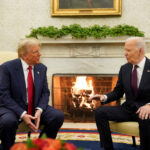 Biden's late moves on China, Russia, AI may mostly boost Trump
Biden's late moves on China, Russia, AI may mostly boost Trump
 17-year-old star student-athlete shot and killed on the way to school
17-year-old star student-athlete shot and killed on the way to school
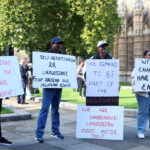 Britain gives Trump team chance to review Chagos Islands deal
Britain gives Trump team chance to review Chagos Islands deal
 Coco Gauff is into the Australian Open's 3rd round and still unbeaten in 2025
Coco Gauff is into the Australian Open's 3rd round and still unbeaten in 2025
 Dec CPI rises a touch above expectations, keeps Fed on track
Dec CPI rises a touch above expectations, keeps Fed on track
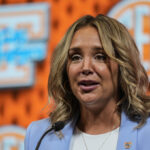 Lady Vols coach Kim Caldwell about to experience another 1st with her baby due any day
Lady Vols coach Kim Caldwell about to experience another 1st with her baby due any day
